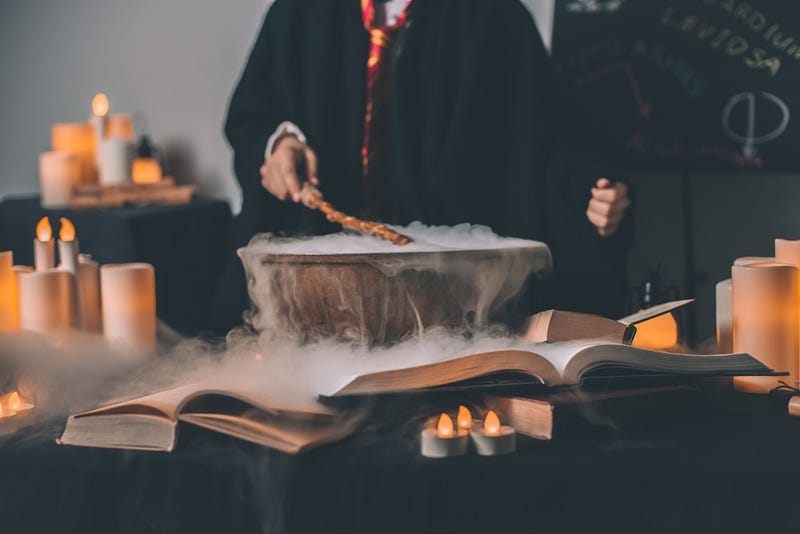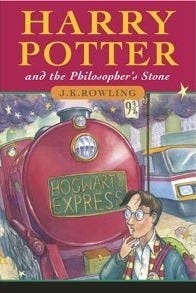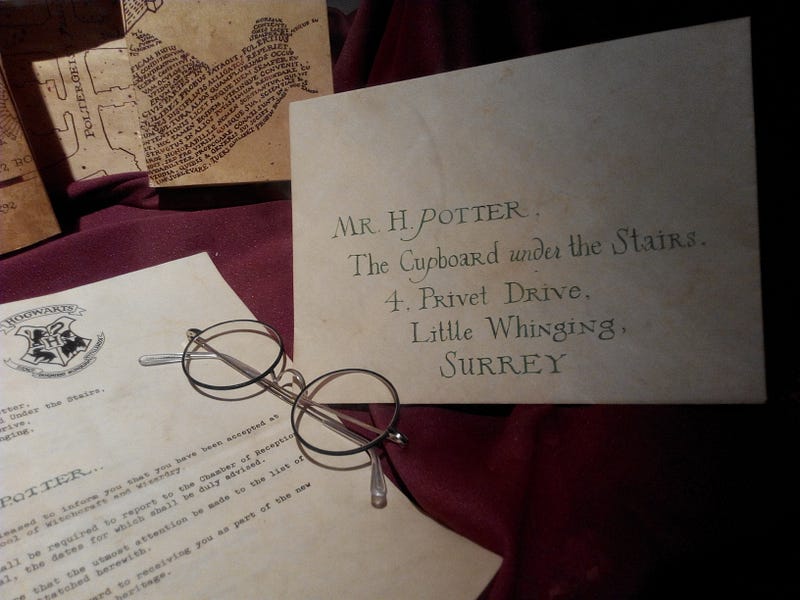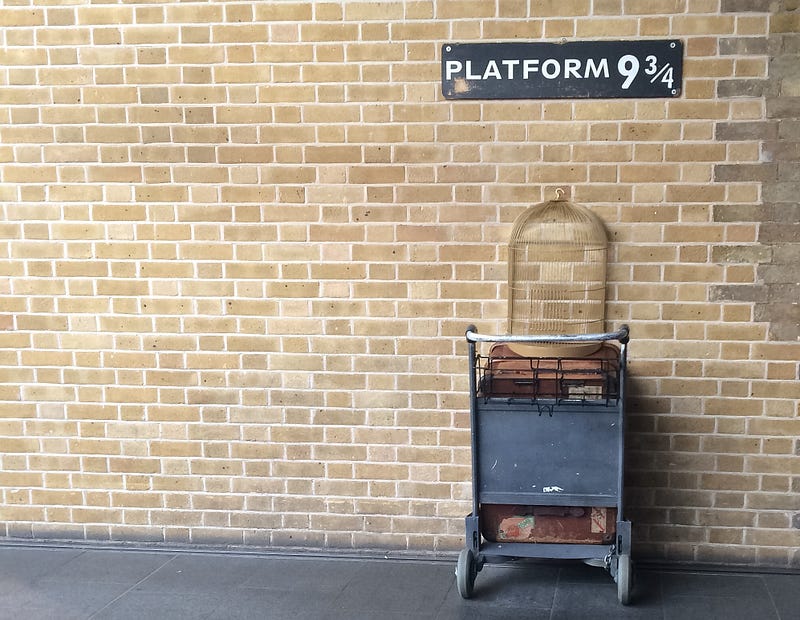Re-Reading Harry Potter as an Adult
The not-so-subtle undertones of child abuse in JK Rowling’s magical world

The not-so-subtle undertones of child abuse in JK Rowling’s magical world
The First Foray into the Magical World
I first read Harry Potter when I was eleven.
Back then, all I used to read were Enid Blytons and Nancy Drews, and hence, when my best friend introduced me to the series, I laughed at her face.
“Magic doesn’t exist”, I told her. “Adventure books are fine because they can happen to us someday, but magic? Well, magic is only for those who believe in bhoot-pret and jadu-tona(superstition).”
“Just read one chapter of the book,” she told me, eyes shining with excitement. “You will love it, I promise.”
And so, I read the first chapter.
Then, the second.
Then, the third, fourth, fifth.
And before I knew it, it was 12 AM, I had dark circles around my eyes, but I had finished reading the book.
Gobbled it up, rather.
It was spell-binding. It had me hooked for seven glorious hours filled with Charms, Transfiguration, Defence Against the Dark Arts, Potions — all different forms of magic, none of them closely resembling jadu tona.
My friend met me the next day and asked me anxiously, “Did you like it?”

“Like it?” I scoffed. “I LOVED it. When can I read the next books?”
And thus, began my obsession with Harry Potter which has lasted till today.
Together, Harry, Ron, and Hermione gave me some of the most memorable moments in literature, some of which are still crystal clear in my head, 16 years after I first read Harry Potter and the Philosopher’s Stone.
The Magic Not Bound by Age
Recently, I decided to re-read the books again.
For the eighth time.
(Yes, I know seven is the most magical number and I wanted to keep it at that, but the temptation of reliving those magical moments was too great to stick to some silly resolution).
I am 27 now, but I was still gushing over how captivating the stories were.
I had tears in my eyes every time Snape bullied Neville, I was whopping the air with excitement when Hermione slapped Malfoy, I had to suppress giggles when Ron decided to declare his love for Romilda Vane, I was crying with Fawkes on the sight of Dumbledore’s broken body below the Astronomy tower, and just like the old times, each Quidditch match made my heart pump harder with the adrenaline rush.
Just like the old times, a familiar warmth embraced my heart and clutched it tighter.
Yes, I still love Harry Potter.
Isn’t there an appropriate age for reading it, you ask?
Well, after a child reaches, say, their seventh or eighth birthday, I would say it is appropriate for everyone.
After all, was magic ever bound by boundaries of age?

The Layers I Missed as a Child
In spite of all the love and the magic, I wouldn’t be exaggerating if I said — as an adult, it is heartbreaking to read Harry Potter and the Philosopher’s Stone. I faced some conflicting emotions, and for the first time, could appreciate the layers J K Rowling had wrapped her work in.
The first few chapters, told from the point of view of an eleven-year-old Harry, are painful to read.
It is quite obvious that the way the Dursleys treated him qualifies as abuse, but as a child, I never realized it for what it was. Back then, Uncle Vernon and Aunt Petunia were caricatures, and whatever they did to Harry sounded like comic relief, because we knew he was going to Hogwarts and things would be alright there.
Accepting abuse as normal
But, now that I read through the prose, I realise this is dark and has some intriguing layers. J K Rowling did a stellar job of showing how people who are abused come to accept it as normal, and believe that every bad thing that happens to them is because of their own fault. Here are a few instances-
Harry was used to spiders, because the cupboard under the stairs was full of them, and that was where he slept.
While this might not sound much, bear in mind that this is something an eleven-year-old boy thinks to himself.
He lives with his uncle, aunt, and cousin in a 4-bedroom apartment where one of the bedrooms is for guests and another is occupied solely by his cousin’s used or broken toys, and yet, Harry has to live in a tiny cupboard full of spiders.
Favouritism and bullying
Perhaps it had something to do with living in a dark cupboard, but Harry had always been small and skinny for his age. He looked even smaller and skinnier than he really was because all he had to wear were old clothes of Dudley’s, and Dudley was about four times bigger than he was.
This might give off the impression that Harry lived in a poor family.
But, these are the same people who gave Dudley 39 presents on his birthday, including a racing bike, a video camera, a remote control aeroplane, sixteen new computer games, and a VCR.
And what happened, you might ask, on Harry’s birthday? Let alone gifting him anything, the 31st of July was completely ignored.
Harry wore round glasses held together with a lot of Sellotape because of all the times Dudley had punched him on the nose.
The Dursleys have a visibly heavier son who bullies his younger cousin. Not only did they encourage that, but they also pretended to not have enough money to buy Harry new glasses. Or school uniforms. Or even socks.
The Dursleys bought Dudley and Piers large chocolate ice creams at the entrance and then, because the smiling lady in the van had asked Harry what he wanted before they could hurry him away, they bought him a cheap lemon ice pop. It wasn’t bad, either, Harry thought, licking it as they watched a gorilla scratching its head…
This is wrong on so many levels, that it breaks my heart.
Justifying Petunia’s behaviour
Some readers might justify Petunia’s behaviour by saying it has something to do with her own experiences with the supposed abnormality and danger Harry posed to their now normal lives. That Harry was a living reminder of the sister she was envious of. That he reminded her so often about her own shortcomings, that she built a wall around her compassion and treated Harry like ‘a dog that had rolled in something smelly.’
I understand Petunia had her own demons. But is that justification enough for treating an 11-year old boy the way she did?
She took in an orphaned baby and spent every waking moment rubbing it in his face that he wasn’t loved or wanted, that the only purpose in his life was to do the chores, while her husband kept complaining how much money his mere existence was causing them, and her son made a sport out of beating him up brutally while his friends held Harry’s hands behind his back so he couldn’t retaliate or run away.
Others might argue that since Harry didn’t consider the Dursleys’ behaviour as “abusive”, probably it was alright for them to treat him the way they did.
An important point to chew on here is that people who are abused tend to have a low threshold for ‘niceness’.
Harry, who never had friends while growing up, learned to accept small acts of kindness as generosities.
So, it’s only natural that he kept making excuses for Petunia’s behaviour. After all, he never wanted to hate her. In his heart, he always yearned for his extended family to love him, which never happened.
By the end of the series, Harry matures and understands that some people are incapable of change, that it will do no good save waste your own time and energy if you keep trying to change their mind.
And that is why, in the end, he forgives the Dursleys, in spite of it all.
But as readers, can we forgive Aunt Petunia for the damage she did?

Book Two and its Complications
The second book in the HP saga begins with Harry Potter turning twelve. It’s his birthday, and like last year, his family completely ignored it.
To make matters worse, Uncle Vernon’s boss, Mr. Mason is expected for dinner at the Dursleys. They have devised an elaborate plan to impress the Masons, which includes a scrumptious meal, Petunia fawning over Mrs. Mason’s dress, Dudley being at his obsequious best, and Uncle Vernon’s choicest jokes.
As for Harry, all he is supposed to do is shut himself up in his room, make no noise, and pretend he doesn’t exist.
To make matters worse, Harry hasn’t received any birthday wishes from his friends at Hogwarts (this is for a different reason).
The hints of physical abuse
When Dudley tries to mock him for not having any friends, Harry loses his cool and lets out his frustration by intimidating Dudley and pretending to do magic. For this small moment of fun, however, Harry had to pay dearly.
Have a look at what happened next-
Aunt Petunia knew he hadn’t really done magic, but he still had to duck as she aimed a heavy blow at his head with the soapy frying pan. Then she gave him work to do, with the promise he wouldn’t eat again until he’d finished.
Just how much damage could the edge of a heavy frying pan have done to a twelve-year-old if it had indeed hit his head?
Overworking and under-feeding
After that, Harry was made to finish a number of tasks while his cousin looked on, which included cleaning the windows, washing the car, mowing the lawn, trimming the flowerbeds, pruning and water the roses, and repainting the garden bench while the July afternoon sun blazed overhead, burning the back of his neck.
Once he was done, he was given a pitiful dinner of two slices of bread and a lump of cheese, while the rest of the family gorged on a pudding of whipped cream and sugared violets and sizzling roast pork.
Solitary confinement
After Dobby famously tipped the pudding on the kitchen floor and an owl brought news that Harry would be expelled from school if he performed any more underage magic, the Dursleys took a savage pleasure from locking Harry up in his bedroom, feeding him scraps, and letting him know they will not let him get back to school ever again.
Uncle Vernon fitting Harry’s window with a mesh so he can’t escape.
If it hadn’t been for the Weasley brothers who came and rescued Harry from his prison, one only wonders what might have happened to Harry.
Starvation
After all, being locked up in his room all day long with so little food and just two trips to the bathroom allowed per day, Harry had been having pretty dark thoughts-
Supposing he was still alive in another four weeks, what would happen if he didn’t turn up at Hogwarts?
The bitter thoughts of a survivor
After Harry’s tumultuous second year at Hogwarts ends, after everything has been said and done, Hermione tentatively asks him —
Your aunt and uncle must be proud, though, won’t they? When they hear what you did this year?
At this, Harry scoffs-
Proud? Are you mad? All those times I could’ve died, and I didn’t manage it? They’ll be furious…
These are some pretty dark words coming from a twelve-year-old, don’t you think?
Closing Thoughts
I’m not an expert in mental health and children’s rights. But from all that I read (and all that Harry told us), the terrible things the Dursleys did to him bordered on child abuse.
No wonder the poor boy always craved for a proper family, had a dark, self-deprecating sense of humour, and the saddest of all, never chose to blame the Dursleys.
